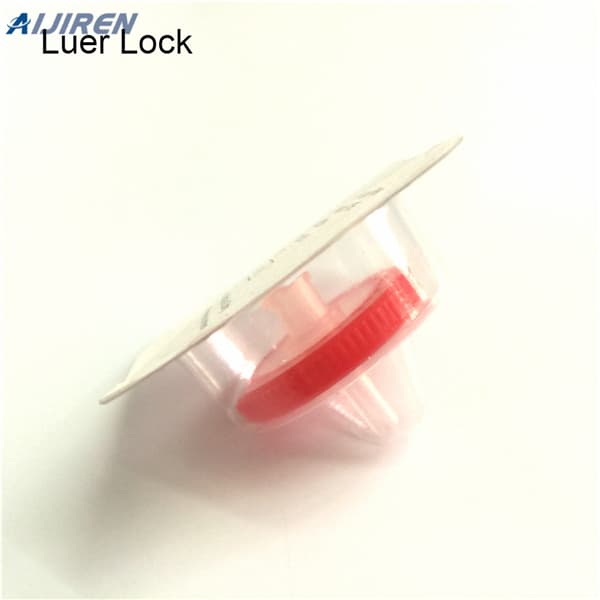
Overview of Non-Sterile Millex® Syringe Filters with Hydrophobic Fluoropore™ (PTFE) Membrane: • Ideal for filtering samples in organic solvents, and can also be used to prevent back-streaming of atmospheric moisture in venting applications. • Broad chemical compatibility and excellent solvent resistance with organic solutions
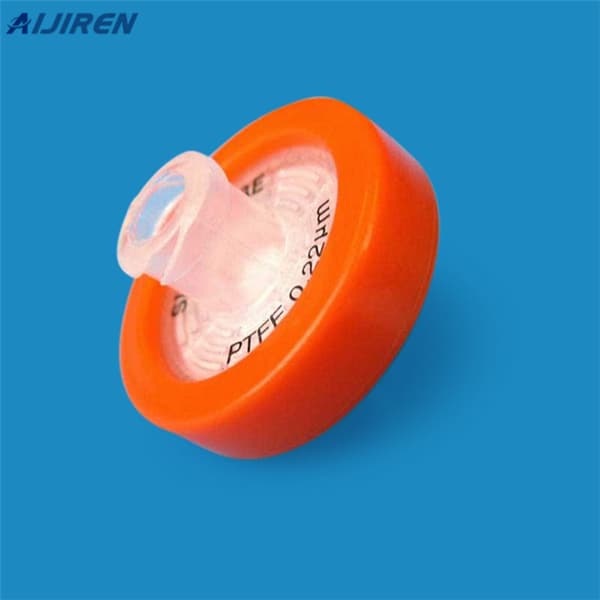
Filter air and gasses, even at low differential pressures. Sartorius™ PTFE (Polytetrafluorethylene) Membrane Filters are permanently hydrophobic with low adsorption and excellent chemical compatibility. Choose from four pore sizes in a variety of diameters. Manufacturer Name - SARTORIUS CORPORATION Manufacturer Code - 11806--25-----N
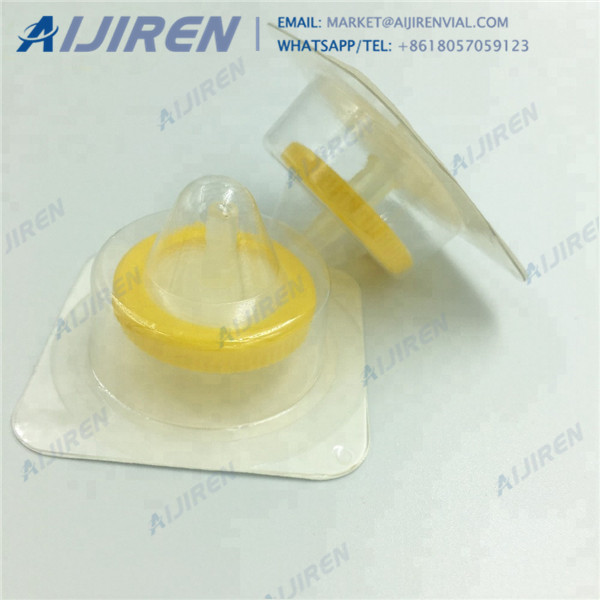
Feature: syringe filter diameter: 25mm, pore size: 0.45um, membrane material: PTFE , hydrophobic property . Syringe filters are made of inert plastic house, membrane, and luer lock fit. It is used with disposal syringes or filtration device with luer fit. Syringe filters are often one-time use only.
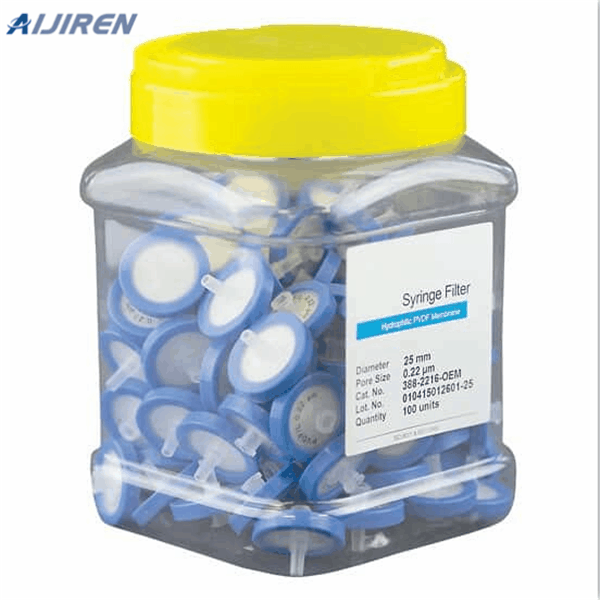
Jan 08, 2017 · PTFE membranes are chemically resistant to nearly all solvents, acids and bases. The membrane has low extractable and good thermal stability. PTFE is hydrophobic and requires pre-wetting prior to use with aqueous solvents. Sterilization: Syringe filters can be sterilized by autoclave at 125° for 15 minutes.
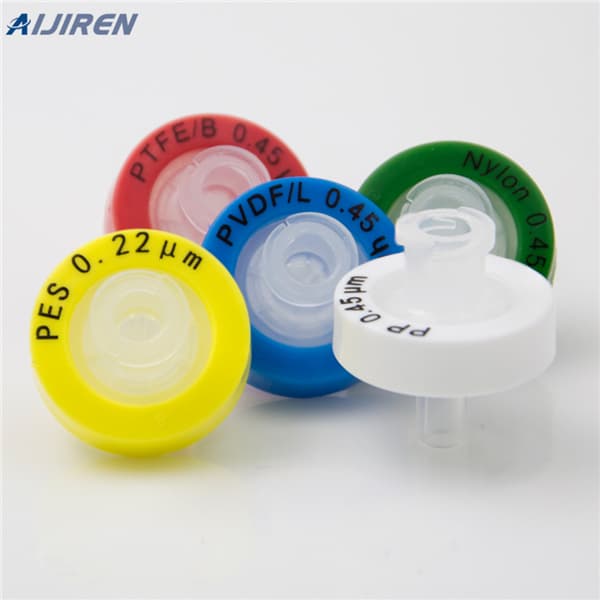
Hydrophobic PTFE syringe filters 25mm Diameter 0.22μm Pore Size For Industrial Filtration by KS-Tek Biotechnology (PACK OF 25) FEATRURE: Hydrophobic PTFE membrane has wide chemical compatibility, excellent corrosion resistance, high rejection, high flow, and can be sterilized in various ways.
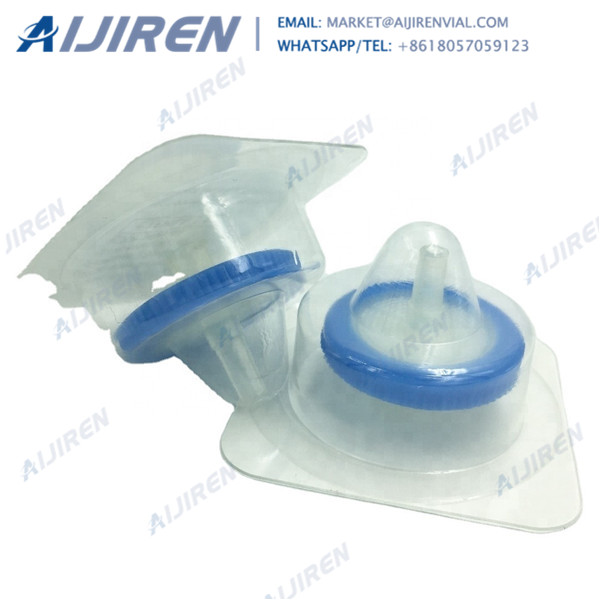
These tables show five common syringe filter materials -- Cellulose Acetate (CA), Nylon, PES, PTFE, and PVDF -- and their compatibilities with 75 common solvents. Compatibility Tables Compatibility Grades. The tables below indicate a compatibility grade for each material/solvent combination. Safe means that the combination is confirmed compatible.
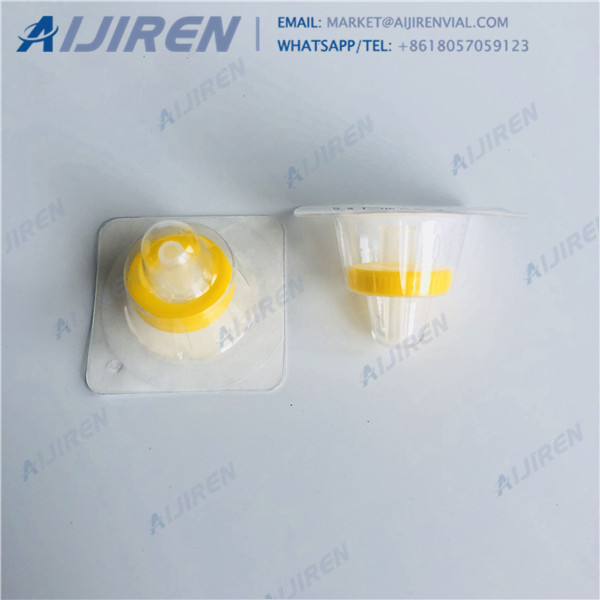
Review the chemical compatibility of Teflon® and PTFE with various chemicals, solvents, alcohols and other products in the cart below. Shop PTFE Please Note: The information in this chart has been supplied by reputable sources and is to be used ONLY as a guide in selecting equipment for appropriate chemical compatibility.
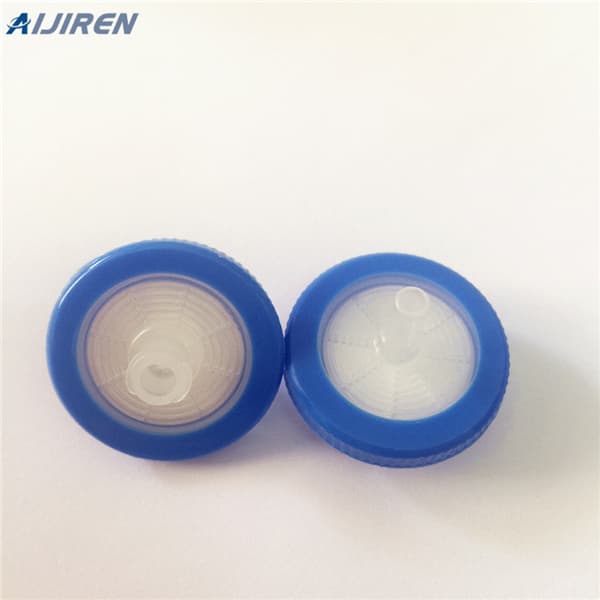
Syringe Filter Housings Syringe filter housings are manufactured from solvent-resistant, low-extractable polypropylene resins specifically selected for wide compatibility with common HPLC sample matrices. Solutions at temperatures up to 100°C can be filtered using syringe filters. Syringe filters can be sterilized by autoclave at
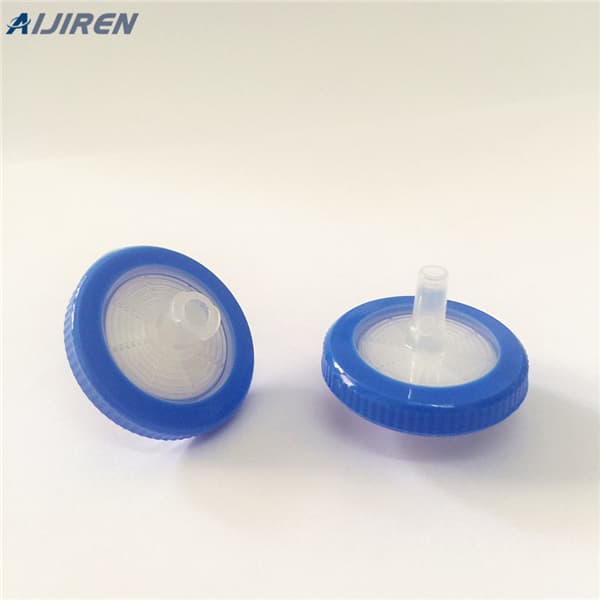
PTFE Syringe Filters, 0.22 Micron, 30mm, 50/pk Product code PT023050
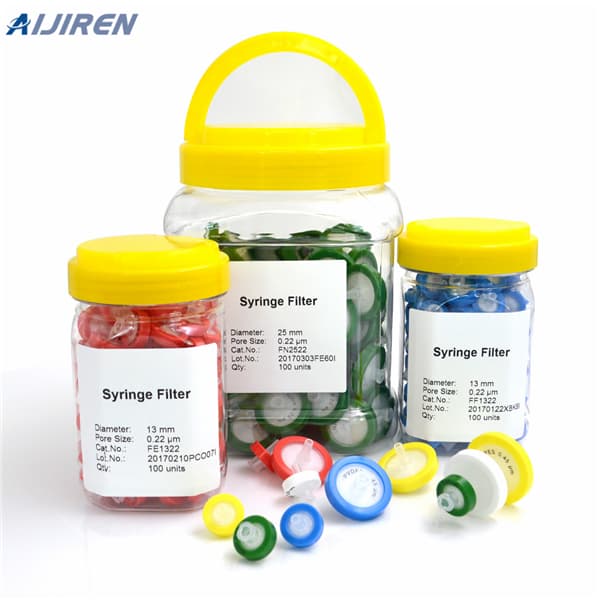
Syringe Filter Housings. 1) Syringe filter housings are manufactured from solvent-resistant, low-extractable polypropylene resins specifically selected for wide compatibility with common HPLC sample matrices. 2) Solutions at temperatures up to 100°C can be filtered using syringe filters. 3) Syringe filters can be sterilized by autoclave at 125°C for 15 minutes.
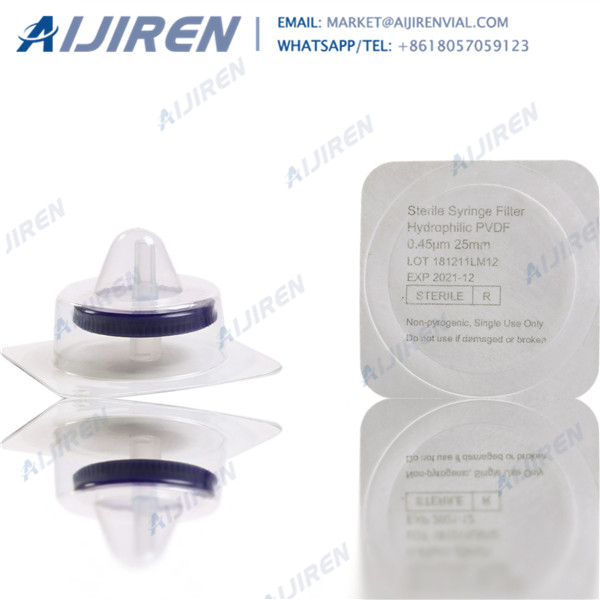
PTFE Syringe Filter 0.22 µm 13 mm Purple 100 pack. $65.00. View Product. Gilson SupaTop Syringe Filters offer reliable and cost-effective solutions for particles removal and clarification needs. With a body made of pigment-free polypropylene, the syringe filters are certified for low levels of UV-absorbing extractables.
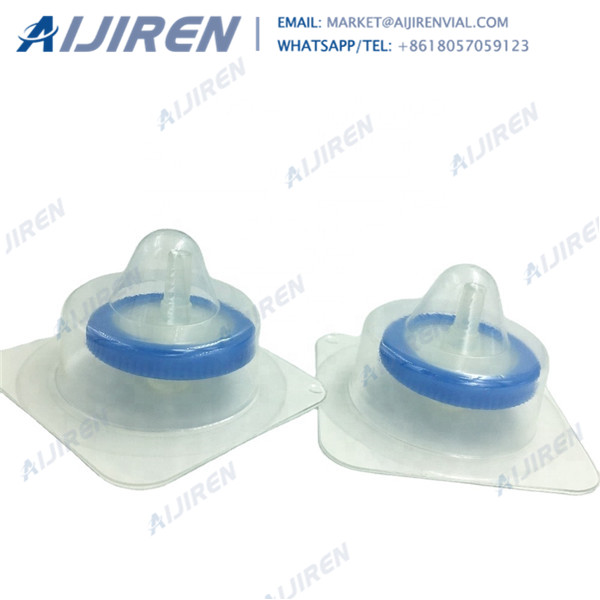
PTFE Syringe Filters Hydrophobic, Johnson Test Papers’ PTFE syringe filters have been specially manufactured to offer maximum efficiency and purity to research requirements. Our range constitutes of a wide range of membranes and syringe filters providing separation and purification solutions for most laboratory related tasks. Applications Wide ranging chemical compatibility Excellent
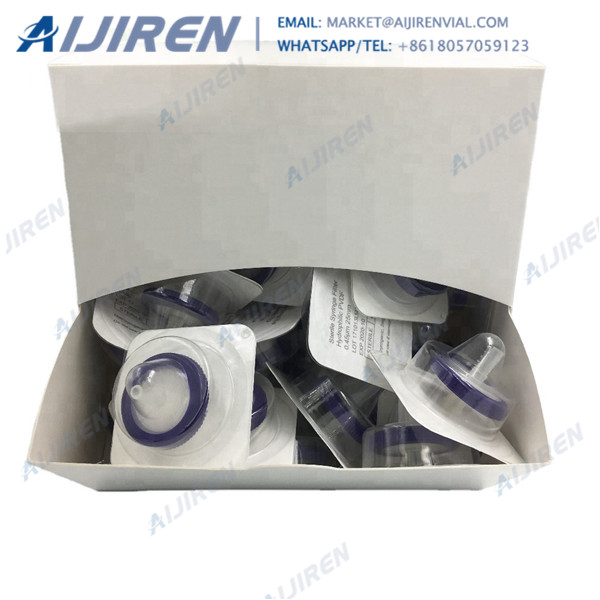
PTFE (Teflon) Membrane Filters PTFE (Polytetrafluorethylene). The hydrophobic nature of teflon and its broad chemical compatibility make it the filter of choice for filtration of air and gases, for use as vents and for clarification of acids, bases and solvents.
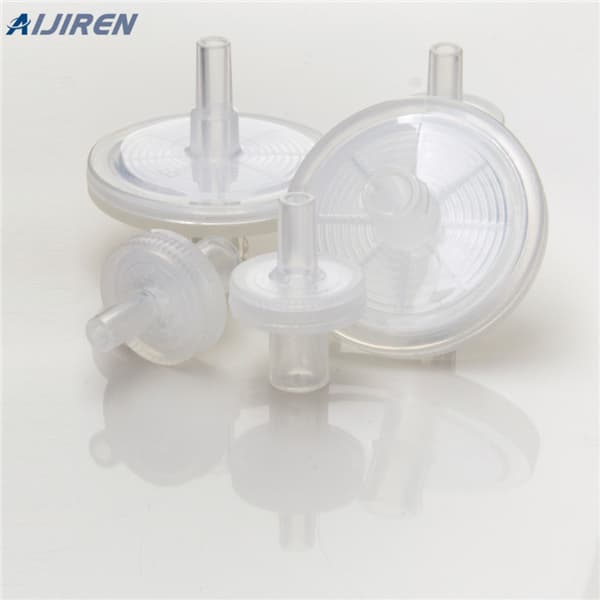
PTFE syringe filters are hydrophobic and chemically resistant to all solvents, acids, and bases. PTFE does not impart any extractables to the filtrate. It's an ideal material for transducer protectors because it blocks water vapor. PTFE is ideal for filtering and de-gassing chromatography solvents.